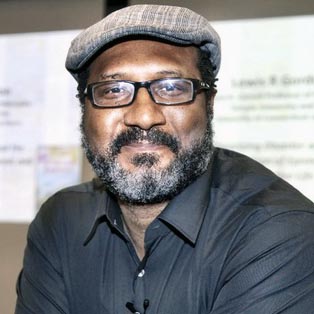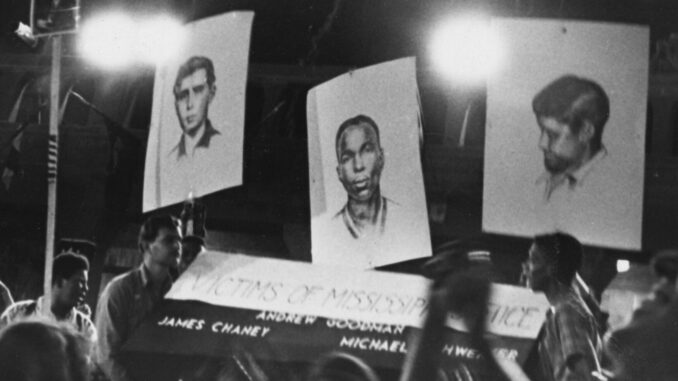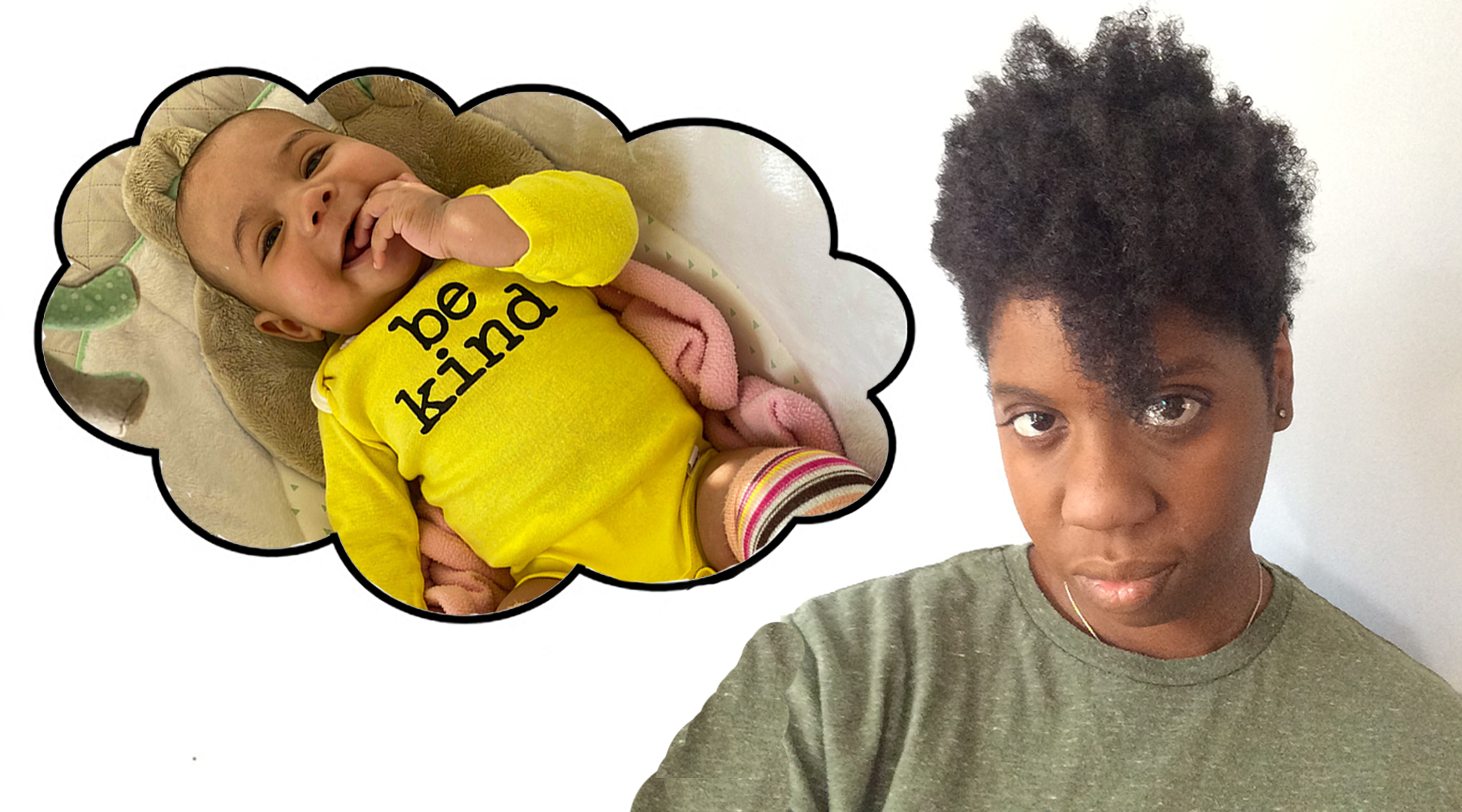Juneteenth (also known as Emancipation Day) – the celebration of 19 June 1865, the day in which Texas complied with the Emancipation Proclamation – is now a national holiday in the United States. The circumstances leading to the proposed bill turning into law were marked by a series of poignant coincidences and deliberations.
First, the vote in the House of Representatives on 16 June 2021 exemplified “rare bipartisan legislation” with 415 in favour and 14 against. The bill was voted on by the Senate a day earlier. The Senate’s vote was unanimous.

Circa 2000: Trumpeter Calvin Owens performs in the street at Emancipation Park, opposite famous music venue the Eldorado Ballroom in Houston, Texas. (Photograph by James Fraher/ Redferns)
Second, the vote occurred on the day in which President of the United States Joseph Biden was meeting with the President of Russia in Geneva, Switzerland – a country that has become a metonym for “peace zone” – on the day of the US House of Representatives’ vote.
Although the meeting was about the war-by-other-means situation going on between the two countries, there is also an echo of race and racism from the Cold War between the United States and the Soviet Union with some twists. The mid-20th-century situation was perhaps stated best by Paul Robeson.
Testifying in front of the House Un-American Activities Committee in 1956, he stated: “My father was a slave, and I stand here struggling for the rights of my people to be full citizens of this country. And they are not … In Russia, I felt for the first time like a full human being … I [remain in the United States] because I’m opposing the neofascist cause.”
The relationship of Black people to struggles for democracy is no understatement. Indeed, what is Black Lives Matter, ultimately, but a struggle for democracy? Despite the bipartisan vote in both branches of Congress, which is an important symbolic step, the reality is that the GOP (Republican Party) is fighting tenaciously to destroy democracy in the United States. The effort to disenfranchise Black voters is at the centre of their campaign.
But, as we know, the Soviet Union fell in 1991, and it was replaced by the Russian Federation, a kleptocracy in league with neofascist movements marked by a penchant for white supremacy. The cozy relationship between President Vladimir Putin and former President Donald Trump, who benefitted from Russian hacking and other forms of interference into the 2016 US presidential election, cast a shadow over not only the United States but also many other countries.
A philosophical thread in that negative turn of events is a retreat into Hobbesianism – although many of those populists, neofascists and neoconservatives are likely unaware they are heirs of Thomas Hobbes’ Leviathan (1651). Recall that Hobbes was obsessed with “security” and “order” to the point of arguing against civil liberties and freedom and in favour of a sovereign or, in today’s language, a “Strong Man” who would supposedly keep the peace, defined as an absence of conventional war and violence. From the perspective of white supremacy, Black people are anathema to peace.

13 June 1956: American singer Paul Robeson before the House Un-American Activities Committee in Washington DC. (Photograph by Bettman/ Getty Images)
The idea of Black people as a threat to peace is, of course, perverse, since historic and continued racial violence is white people persistently destroying Black people’s effort to live peacefully in white-dominated countries. In addition to lynchings, the history of Black massacres should challenge skeptics.
That the Russian Federation is ruled by leaders antipathetic to democracy made allying with white supremacists in the United States, in a word, natural. The fact that a white supremacist president of the United States fostered kleptocracy, racial violence and insurrection but was not held accountable by the US Senate (a relic of a compromise against democracy devised to protect former slaveocracies) made it clear that the Russian President is on the wrong side of history. The question, now, is whether the current US president is setting the path for his country to be on a better one.
This reflection brings us to, third, that Biden signed the legislation. Juneteenth is now a federal holiday. There are those who may mistakenly read it as a Black holiday. But why should commemorating the end of legalised enslavement be interpreted as of interest only to Black people? Don’t all people in the United States claim to love freedom, and at least most – since we can no longer count many members of the GOP, who are openly fighting for disenfranchisement – claim to value democracy?
Biden signing the bill into law has an ironic and poignant element. His political career was predominantly as a senator from Delaware. That state, we should remember, did not outlaw enslavement until December 1865. Bear in mind this was not a matter of goodwill. The 13th Amendment of the US Constitution, which officially ended legalised slavery (except for incarcerated people), was ratified on 6 December 1865. Biden, born in Pennsylvania, thus plays a redemptive role in the history of his adopted home state of Delaware.

17 June 2021: United States President Joe Biden hands a pen to Opal Lee, the grandmother of Juneteenth, at a signing ceremony for legislation that makes 19 June a federal holiday. (Photograph by Oliver Contreras/ Sipa/ Bloomberg via Getty Images)
Although a historic moment resulting from a tumultuous preceding year of protest in which there were people who lost their lives – and we should not forget that Black people have never stopped fighting for freedom throughout enslavement and neo-enslavement – we should not forget that laws are meaningless without actions fulfilling their promise. Laws, as Black people and most among the impoverished and the dispossessed know so well, can be abused. In the end, instead of “lawfare”, we need institutions in which political actions can increase the options – material and social conditions – for people to live decent lives marked by dignity and respect.
For readers who are curious about what “lawfare” means, it was coined by US Army Major General Charles Dunlap as a conjunction of “law” and “warfare”. The Lawfare Institute defines it as follows: “Lawfare is the misuse and abuse of law for political and military ends … Lawfare is a powerful weapon for fighting political enemies, combining apparently legal actions and widespread media coverage. The idea is to embarrass the enemy to the point where they become extremely vulnerable to the baseless accusations. Once weakened, they lose popular support and any power of reaction.”
These are familiar techniques of the right wing. The Lawfare Institute doesn’t name political parties, but any student of politics could spot the tactics of the GOP since 2001 in the institute’s elaboration of lawfare tactics: “To destroy someone, lawfare is using the following tactics: abuse existing laws to delegitimise and harm the adversary’s public image; use of legal procedures to restrain their freedom, to intimidate them; to silence them; influence public opinion negatively to anticipate judgments and curtail their right to an unbiased defense; constrain public agents and bring retaliations against the politicians to hamper legal defense mechanisms; tactical manipulation of a false cause and attempt to harass and embarrass defense lawyers.”
Replace “lawyers” with “scholars” or “professors”, and one could easily see what is going on with the right-wing attack on Critical Race Theory and related research in the academy. Additionally, that, despite the bipartisanship on the Juneteenth legislation, the GOP is actively using legislation to destroy democracy and develop new mechanisms of enslavement makes it clear that lawfare is in full swing. Many, probably most, Black people know that many whites are more worried about being called racists than doing anything about racism.
Still, symbolism is important. Symbolic acts are testaments not necessarily about what we are, but, instead, what we should and can be.
Although not all Black people are descendants of the enslaved, and although not all Black people may agree with this legislation, I’m pretty sure that most Black people are jubilant about what it represents. I was in a virtual forum commemorating Youth Day in South Africa when the vote was passed in Congress. 16 June is the anniversary of the Soweto and other uprisings in that country.

19 June 2020: A man kneels and raises his fist for eight minutes and 46 seconds in memory of George Floyd at the Martin Luther King Jr Memorial in Washington during a march to mark the Juneteenth holiday. (Photograph by Chip Somodevilla/ Getty Images)
Many who died in that and other struggles against apartheid challenged the nefarious system and inspired others to fight for freedom. They are still fighting. That this Black man in the United States can collaborate with Black women and men (and those who don’t identify with gender) in South Africa testifies the galvanising force of politically resonant symbols. It is poignant that the legislation commemorating 19 June was passed on 16 June.
I cannot help but think, as a Black Jew, of what we do at seders during Pesach (Passover). The Exodus story (from Shemot, “Names” in the Hebrew title) is, after all, one of liberation from enslavement. We are supposed to rest and reflect on such a struggle. For Black Jews, of course, this is a multiplied reflection.
For many of us, even if we are no longer enslaved, we know we are not quite free. Juneteenth speaks to a part of us that was held back while others enjoyed liberties. Allowing a day’s reprieve, premised on such reflection, reminds many of us – as enslavement unfortunately continuesfor so many – of those reverberating words: “A luta continua! (The struggle continues!)”
I am sure that Paul Robeson and the many ancestors who fought for freedom in this land would agree.
This article originally appeared on APA online.







